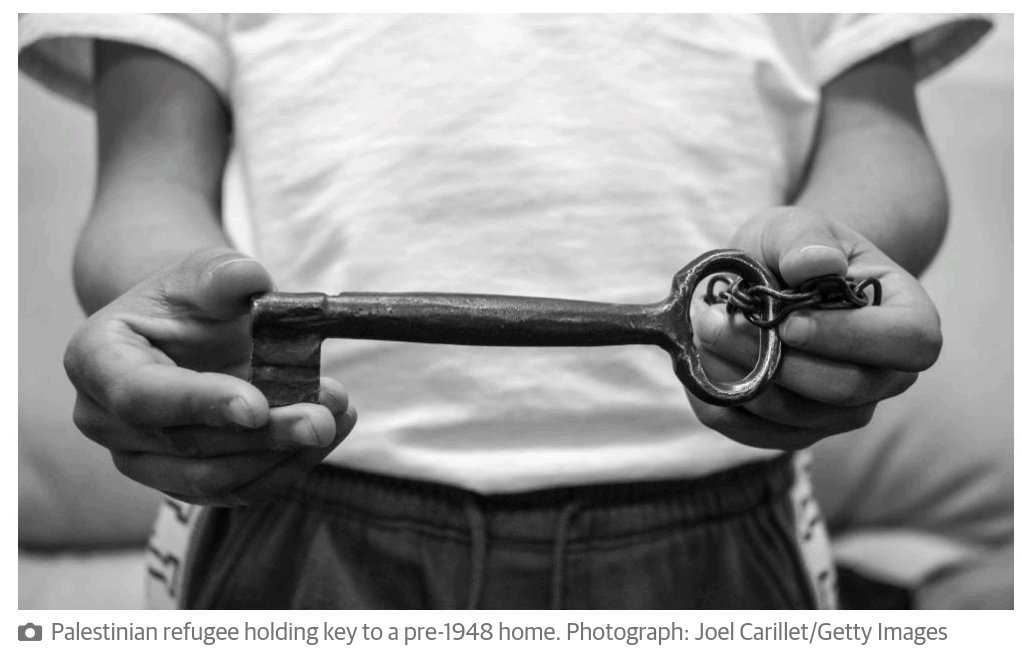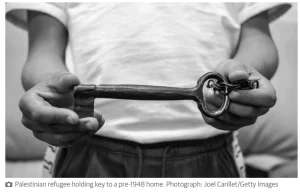W listopadzie 1948 Izrael przeprowadził spis ludności. Miesiąc później, Knesset uchwalił "Prawo o Własności Nieobecnych" które stanowiło, że każdy, kto nie przebywał w swojej nieruchomości w czasie spisu, traci do niej prawo. Oznaczało to nie tylko, że palestyńscy uchodźcy którzy znaleźli się poza granicami Izraela nie mogli odzyskać swoich domów i ziem, ale nawet Palestyńczycy przesiedleni wewnątrz Izraela, którzy stali się obywatelami Izraela, generalnie tracili swoją własność na rzecz państwa. W zdaniu godnym Orwella rząd izraelski nazwał ich „obecnymi nieobecnymi”.
Skala kradzieży ziemi była zdumiewająca. Kiedy ONZ uchwaliła plan podziału w listopadzie 1947, Żydzi posiadali około 7% terytorium Mandatu Palestyny. Na początku lat 50. prawie 95% ziemi Izraela należało do państwa żydowskiego.
In November 1948, Israel conducted a census. A month later, the Knesset passed the Law for the Property of Absentees, which determined that anyone not residing on their property during the census forfeited their right to it. This meant not only that Palestinians outside Israel’s borders were barred from reclaiming their houses and lands, but that even Palestinians displaced inside Israel, who became Israeli citizens, generally lost their property to the state. In a phrase worthy of Orwell, the Israeli government called them “present absentees”.
The scale of the land theft was astonishing. When the UN passed its partition plan in November 1947, Jews owned roughly 7% of the territory of Mandatory Palestine. By the early 50s, almost 95% of Israel’s land was owned by the Jewish state.
https://www.theguardian.com/news/2021/may/18/a-jewish-case-for-palestinian-refugee-return?











Komentarze (56)
najlepsze
źródło: comment_1624960724z2WWSGsF7ZQeYBc40wR54j.jpg
PobierzKomentarz usunięty przez moderatora
https://www.theguardian.com/news/2021/may/18/a-jewish-case-for-palestinian-refugee-return?